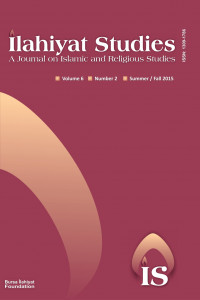Inquisition in Early Islam : The Competition for Political and Religious Authority in the Abbasid Empire, by John P. Turner
Abstract
First paragraph: The dramatic events surrounding the miḥna (inquisition) have been the subject of immense academic interest over recent years. It is frequently acknowledged that their historical unfolding represents a key milestone in the history of early Islamic theological thought; and many scholars link the political fortunes of the early ʿAbbāsid empire to the episode. Imposed by the caliph al-Maʾmūn (ruled 198-218/813-833), during the miḥna the class of learned scholars was compelled to submit to the doctrine that the Qurʾān was created; it became a salient point of contention in theological discourses with proto-Sunnī orthodoxy defining itself through opposition to the policy. Despite the death of al-Maʾmūn, shortly after its imposition, the policy was continued during the successive caliphates of al-Muʿtaṣim (ruled 218-227/833-842) and al-Wāthiq (ruled 227-232/842-847). Al-Mutawakkil revoked it in 232/847. Challenging some of the commonly held perceptions about the miḥna, the book under review sets out to examine its origins and the reasons why it was imposed, gauging its importance within the context of broader historical periods. The book also examines the role of caliphs and the ʿulamāʾ as contributors to the synthesis and elaboration of questions of faith and dogma. Critically, the key argument which defines John Turner’s study of the miḥna is the contention that although within contemporary scholarship there exists a general acceptance that the miḥna stands out as an anomaly and watershed event, culminating in the failure of the caliphs to impose their will, there is ample evidence to suggest that this is not the case. Turner argues that the miḥna stood out not because it proved to be a decisive turning point in the struggle for religious authority or indeed for its theological distinction as a point of dispute, but due to its being manipulated as an historical narrative by adherents of the Ḥanbalite school. He argues that this was part of their strategy to assert their orthodox credentials and thereby gain legitimacy as a school. They reshaped its narratives and topoi, situating Ibn Ḥanbal (d. 241/855) as a staunch defender of orthodoxy and champion of the episode.
Inquisition in Early Islam : The Competition for Political and Religious Authority in the Abbasid Empire, by John P. Turner
Abstract
The dramatic events surrounding the miḥna (inquisition) have been the subject of immense academic interest over recent years. It is frequently acknowledged that their historical unfolding represents a key milestone in the history of early Islamic theological thought; and many scholars link the political fortunes of the early ʿAbbāsid empire to the episode. Imposed by the caliph al-Maʾmūn (ruled 198-218/813-833), during the miḥna the class of learned scholars was compelled to submit to the doctrine that the Qurʾān was created; it became a salient point of contention in theological discourses with proto-Sunnī orthodoxy defining itself through opposition to the policy. Despite the death of al-Maʾmūn, shortly after its imposition, the policy was continued during the successive caliphates of al-Muʿtaṣim (ruled 218-227/833-842) and al-Wāthiq (ruled 227-232/842-847). Al-Mutawakkil revoked it in 232/847. Challenging some of the commonly held perceptions about the miḥna, the book under review sets out to examine its origins and the reasons why it was imposed, gauging its importance within the context of broader historical periods. The book also examines the role of caliphs and the ʿulamāʾ as contributors to the synthesis and elaboration of questions of faith and dogma. Critically, the key argument which defines John Turner’s study of the miḥna is the contention that although within contemporary scholarship there exists a general acceptance that the miḥna stands out as an anomaly and watershed event, culminating in the failure of the caliphs to impose their will, there is ample evidence to suggest that this is not the case. Turner argues that the miḥna stood out not because it proved to be a decisive turning point in the struggle for religious authority or indeed for its theological distinction as a point of dispute, but due to its being manipulated as an historical narrative by adherents of the Ḥanbalite school. He argues that this was part of their strategy to assert their orthodox credentials and thereby gain legitimacy as a school. They reshaped its narratives and topoi, situating Ibn Ḥanbal (d. 241/855) as a staunch defender of orthodoxy and champion of the episode.
Keywords
Details
| Primary Language | English |
|---|---|
| Subjects | Religious Studies |
| Journal Section | Book Reviews |
| Authors | |
| Publication Date | June 17, 2016 |
| Submission Date | October 13, 2015 |
| Published in Issue | Year 2015 Volume: 6 Issue: 2 |

